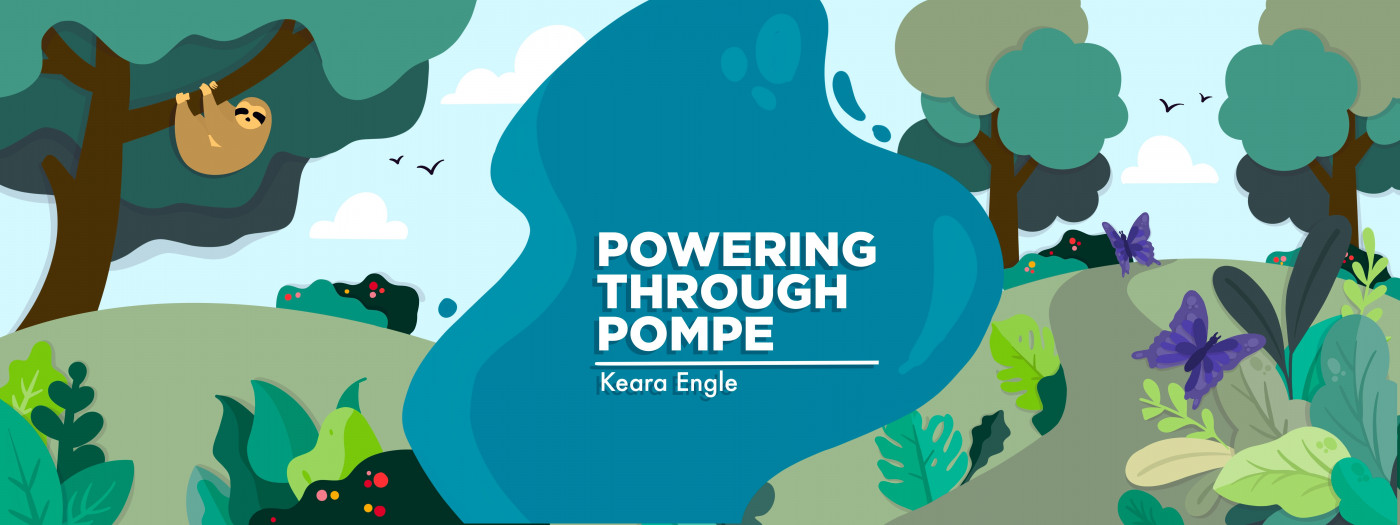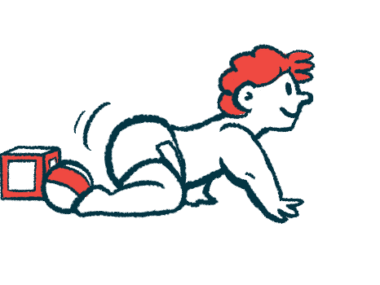Thanks to my son with Pompe, I’m learning that it’s OK to slow down
Parenting a child with a rare disease has taught me patience
Written by |

When you become a parent, one of the first things you must learn is patience. Sometimes you’re in a rush to get things done, and then — boom! — the baby is crying or your toddler is yelling your name. At that moment, you have to practically drop what you’re doing and tend to your child.
This is something I learned years ago when I had my son Cayden, who is 5. But Cayden has taught me patience in other ways, too. Due to his infantile-onset Pompe disease, he has weakened muscles. Things that would normally be quick and easy take longer for him to do, if he can do them at all.
Before I had Cayden, I was the type of person who always rushed around. I never wanted to be late for anything, and I was definitely the type of kid who wanted to finish first on school tests or be the first to turn in a project. I wouldn’t say I’ve changed completely, but since having Cayden, I’ve learned that it’s OK to slow down and be patient.
Taking our time
Changing clothes, for example, is a breeze for most people. But for Cayden, it takes a bit longer and we have to be careful. He can get his arms in and out of sleeves with minimal help, but he can’t pull shirts over his head. When it comes to pants, he needs full assistance getting them on and off.
Pompe disease has taken away Cayden’s ability to use his legs. He can’t stand, walk, or even move his legs on his own. Oftentimes, he uses his arms to move his legs into a comfortable position while he’s sitting. To get around, he uses a wheelchair or relies on adults to move him from place to place.
Moving him around is no easy task, either. Cayden is the size of a typical 5-year-old. He weighs about 41 pounds and cannot help to support his weight when he’s being lifted or held. It takes a lot of strength and balance to carry him to and from the car and put him in his car seat, or even bring him from room to room at home.
When Cayden talks, it’s a bit hard to understand him. This is a common symptom with infantile-onset Pompe disease. Sometimes we have to ask him to repeat himself several times or ask him to further explain what he’s asking for because we can’t understand him. Although he prefers to use his voice, when we can’t decipher what he’s saying at all, he uses an iPad to help. It takes him a few minutes to click all the right buttons, but eventually he gets it.
As you can see, there are endless ways that Pompe disease slows down our lives a little. However, I don’t think that has to be viewed negatively. It’s OK to take your time instead of always being in a rush. After all, when you rush, you’re more prone to make mistakes.
Note: Pompe Disease News is strictly a news and information website about the disease. It does not provide medical advice, diagnosis, or treatment. This content is not intended to be a substitute for professional medical advice, diagnosis, or treatment. Always seek the advice of your physician or other qualified health provider with any questions you may have regarding a medical condition. Never disregard professional medical advice or delay in seeking it because of something you have read on this website. The opinions expressed in this column are not those of Pompe Disease News or its parent company, Bionews, and are intended to spark discussion about issues pertaining to Pompe disease.




Liliana Petrilli Segnini
Chris é meu amado neto que mora na Inglaterra. Ele foi diagnosticado logo após seu nascimento. Ele está com dois anos e meio. Está muito bem!